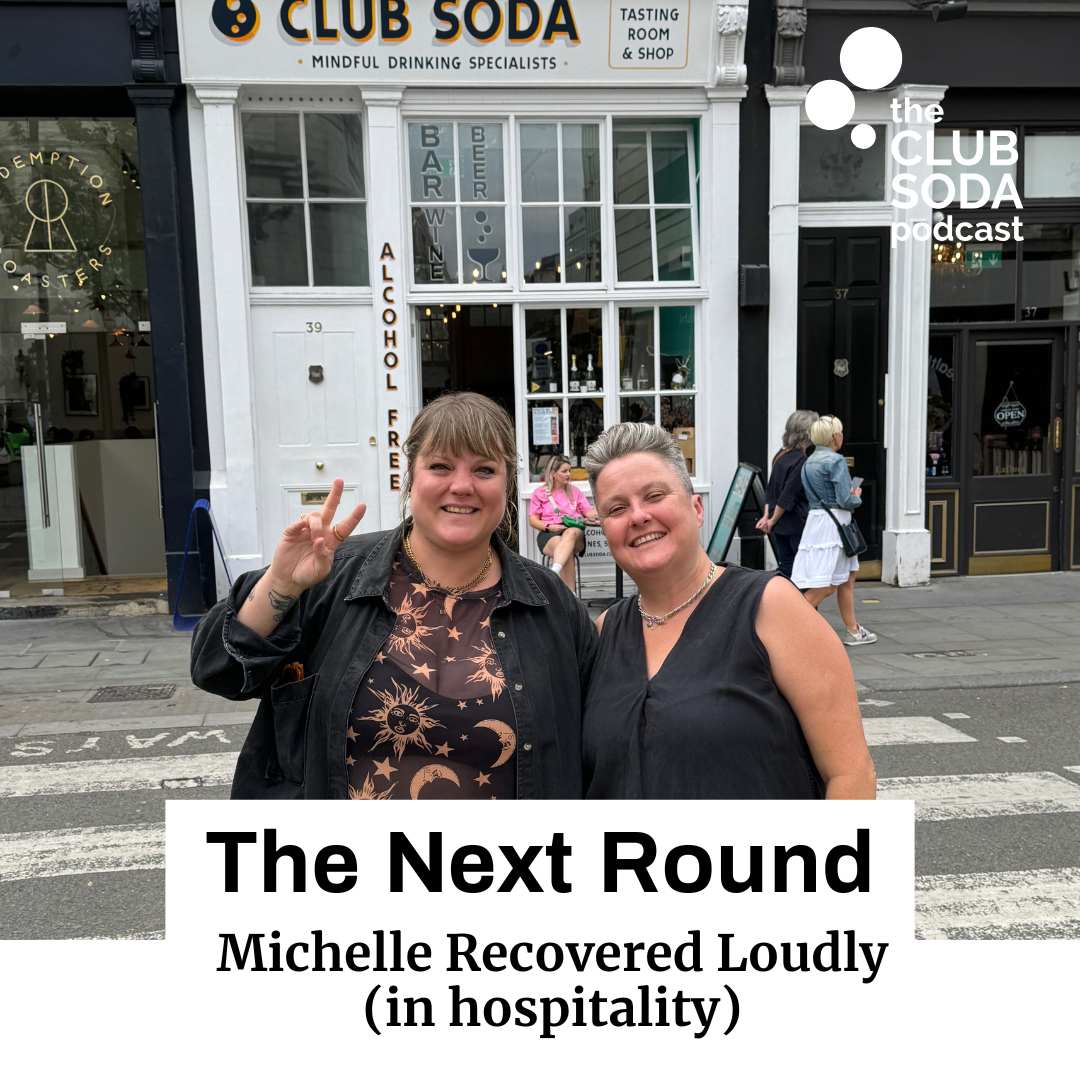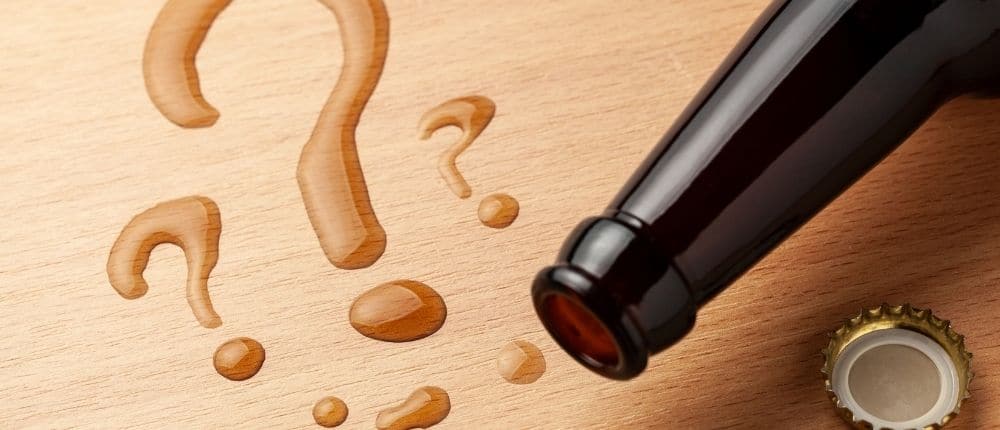
This website uses cookies to improve your experience. We'll assume you're ok with this, but you can opt-out if you wish. Read More
The Next Round: What happens after you change your drinking?

Did you stop drinking for a month during Sober October or Dry January? Maybe your alcohol consumption was getting out of hand, and you took a break to get some perspective. Or perhaps you’ve been alcohol-free for several years, and you’re wondering about reintroducing alcohol into your life.
Club Soda supports you to change your drinking, with courses to help you stop drinking or drink mindfully. What matters to us is what works for you. But inevitably, that means I have regular conversations with people about whether they can have just one drink, especially after taking a break.
If you know deep down that continuing alcohol-free is your best option, please don’t torture yourself by reading this. Get inspired to stay alcohol-free.
But otherwise, you will want to consider your reasons to stay alcohol-free, your motivation for drinking again, and the practicalities of consciously consuming alcohol. Read on.
If you’ve been in treatment for alcohol dependence, your best option is to remain alcohol-free. Complete abstinence may present real challenges for you, of course. Staying sober isn’t easy, but it is worth it. Many people in the Club Soda community have clocked up 10, 15, 20 years or more without alcohol. Life gets better if you keep going.
There are some other circumstances in which staying alcohol-free is a safer option than drinking:
One big reason it can be challenging to stay alcohol-free is that you’re surrounded by people who drink. But if your partner, family or friends are all big drinkers, they’re not typical. One-third of the UK population either never drinks or has less than one drink a month. So you’re the only one. You might just need to make some new friends.
If you are considering whether to drink alcohol again, there’s no harm in waiting. Every day you don’t decide is another day alcohol-free, and the physical benefits of sobriety will continue to build up.
And fundamentally, it is OK to ask the question. Don’t beat yourself up if you are just considering your options. Thinking through the upsides and downsides of drinking again might strengthen your resolve to stay alcohol-free. Asking the question doesn’t make drinking inevitable.
Having an outsider’s perspective on alcohol culture is helpful too. If you’ve been deep in any situation, time away can give you a fresh perspective. The longer your break, the more you might notice about alcohol and the role it has played, in your life, in the lives of others and in society more widely. It is a gift to be able to see things as they are.
It becomes vital then to carefully consider your personal motivation for consuming alcohol again. As Professor David Nutt writes in his book Drink? The New Science of Alcohol and Your Health (Amazon UK, US, Aus) “What drinking alcohol needs to be, above all, is a conscious act.”
So you find yourself in an unusual position in a society that takes alcohol for granted. You are thinking about drinking.
Researchers identify three types of drinking that can get us into difficulties, what they describe as social, emotional and routine drinking. So as you are considering drinking again, reflect back on your past habits.
Of course, it’s OK to want to drink alcohol just because you like it. Consuming alcohol can be pleasurable, and pleasure is a valid pursuit in its own right. But it’s helpful to notice how you’ve used alcohol in the past. Those reasons are unlikely to have changed just because you’ve taken time off. So old patterns of behaviour might emerge for you if you start again.
Don’t let your unconscious feelings push you back to alcohol. If you’re going to drink again, make sure it is a positive and mindful choice.
All humans are prone to confirmation bias. So be cautious about the evidence you include in your decision to drink again. As you reflect on your motivation, you might only consider the upsides of starting again and the downsides of staying alcohol-free. But it’s vital to consider the upsides of staying alcohol-free and the downsides of consuming alcohol.
Be curious about what’s driving your decision making, especially if you feel like you are missing out. While pushing alcohol to the edges of life can feel positive and happy, it can also leave behind real feelings of loss and emptiness. All your longings for alcohol can be met in other ways.
Taking a break from alcohol doesn’t magically equip you with the skills to drink moderately. Sober October wouldn’t have fixed the problem if you didn’t know how to stop in September. If you could drink in moderation, you would already be doing it. So there are skills to learn and attitudes to practise if you want to drink differently.
We all respond to our environments, and many are designed to make drinking easier: pubs, parties and our own homes. So being mindful about drinking means paying attention to any situation in which you might drink more than you want to. Once you start to become mindful about your triggers for drinking, you can make practical plans to drink differently. Winging it will not work.
Unlearning a lifetime’s unconscious habits may take you the rest of your life.
Many of the tactics you might employ are the same as someone cutting back on their alcohol consumption. You’ll need to calibrate how much alcohol you want to consume if you’re going to drink without getting drunk. You might want to consider lower-alcohol alternatives, having two alcohol-free drinks first and drinking more slowly. These are all helpful approaches to moderate drinking.
But the much more significant change is in your mindset. What might life look like if drinking never just happened? Or if you never expected that drinking was the only response to a situation? What if you could enter any situation confidently without thinking about drinking? If you are alcohol-free by default, every drink becomes a deliberate choice rather than a foregone conclusion.
There’s no need to rush into a decision to start drinking again. And to be frank, unlearning a lifetime’s unconscious habits may take you the rest of your life. Consciously including alcohol in your life might not be the easiest path for you. You might decide on balance that it’s just easier to continue without drinking. But if you’re ready, moderation can work – with time, patience and practice.
If you want to include alcohol in your life, Club Soda’s course How to Drink Mindfully could give you the skills, attitudes and practice you need to make a success of it. The course comes with 31 step-by-step lessons, in-depth learning, interactive tools and a supportive community of people who are taking steps towards the life they imagine. Sign up today.
This website uses cookies to improve your experience. We'll assume you're ok with this, but you can opt-out if you wish. Read More
| Name | Domain | Purpose | Expiry | Type |
|---|---|---|---|---|
| wpl_user_preference | joinclubsoda.com | WP GDPR Cookie Consent Preferences. | 1 year | HTTP |
| PHPSESSID | www.tickettailor.com | PHP generic session cookie. | 55 years | HTTP |
| AWSALB | www.tickettailor.com | Amazon Web Services Load Balancer cookie. | 7 days | HTTP |
| YSC | youtube.com | YouTube session cookie. | 55 years | HTTP |
| Name | Domain | Purpose | Expiry | Type |
|---|---|---|---|---|
| VISITOR_INFO1_LIVE | youtube.com | YouTube cookie. | 6 months | HTTP |
| Name | Domain | Purpose | Expiry | Type |
|---|---|---|---|---|
| _ga | joinclubsoda.com | Google Universal Analytics long-time unique user tracking identifier. | 2 years | HTTP |
| sbjs_migrations | joinclubsoda.com | Sourcebuster tracking cookie | 55 years | HTTP |
| sbjs_current_add | joinclubsoda.com | Sourcebuster tracking cookie | 55 years | HTTP |
| sbjs_first_add | joinclubsoda.com | Sourcebuster tracking cookie | 55 years | HTTP |
| sbjs_current | joinclubsoda.com | Sourcebuster tracking cookie | 55 years | HTTP |
| sbjs_first | joinclubsoda.com | Sourcebuster tracking cookie | 55 years | HTTP |
| sbjs_udata | joinclubsoda.com | Sourcebuster tracking cookie | 55 years | HTTP |
| sbjs_session | joinclubsoda.com | SourceBuster Tracking session | Session | HTTP |
| Name | Domain | Purpose | Expiry | Type |
|---|---|---|---|---|
| mailchimp_landing_site | joinclubsoda.com | Mailchimp functional cookie | 28 days | HTTP |
| __cf_bm | tickettailor.com | Generic CloudFlare functional cookie. | Session | HTTP |
| NID | google.com | Google unique id for preferences. | 6 months | HTTP |
| Name | Domain | Purpose | Expiry | Type |
|---|---|---|---|---|
| _ga_10XZMT03ZM | joinclubsoda.com | --- | 2 years | --- |
| AWSALBCORS | www.tickettailor.com | --- | 7 days | --- |
| cf_clearance | tickettailor.com | --- | 1 year | --- |
| VISITOR_PRIVACY_METADATA | youtube.com | --- | 6 months | --- |
Join Club Soda for 10% off your first order of drinks for UK delivery. Plus get our latest news and special offers for members to choose better drinks, change your drinking and connect with others.
If you get an error message with this form, you can also sign up at eepurl.com/dl5hPn